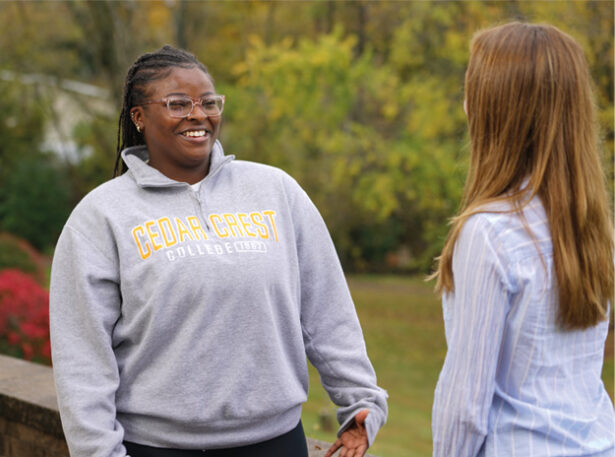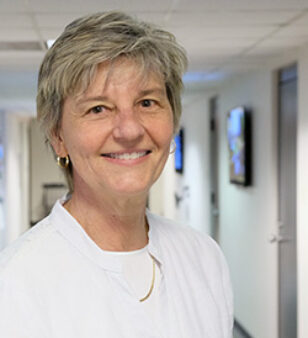Want to Learn More?
The health and wellness minor is designed to give you a comprehensive approach to and understanding of health promotion and disease prevention and to acquire the knowledge necessary for achieving optimal well-being.
The minor consists of courses from disciplines such as biology, psychology, social work, religion/spirituality, and humanities. Additionally, the minor requires that you attend to your physical health through participation in credit and/or non-credit activities such as dance courses or participation in fitness programs.
The multidisciplinary nature of the minor will add distinctiveness to your education, particularly as it relates to the multifaceted nature of the study of health and wellness.
Dive A Little Deeper
Upcoming Admissions Events
Cooperative Agreements
Cedar Crest College collaborates with several academic institutions to provide our students with innovative pathways that help them succeed in their chosen fields.

How To Apply
Ready to apply as an undergraduate student?

Accreditation
Cedar Crest College is accredited by the Middle States Commission on Higher Education; 1007 North Orange Street, 4th Floor, MB #166, Wilmington, DE 19801
Faculty & Staff
Who’s teaching you is as important as the curriculum you choose.
Let’s put a face to some of the names you’ll be seeing on the course listings!
- School of Adult and Graduate Education
- sage@cedarcrest.edu
- P: 610-740-3770
- Traditional Admissions
- admissions@cedarcrest.edu
- P: 800-360-1222
- F: 610-740-3780




